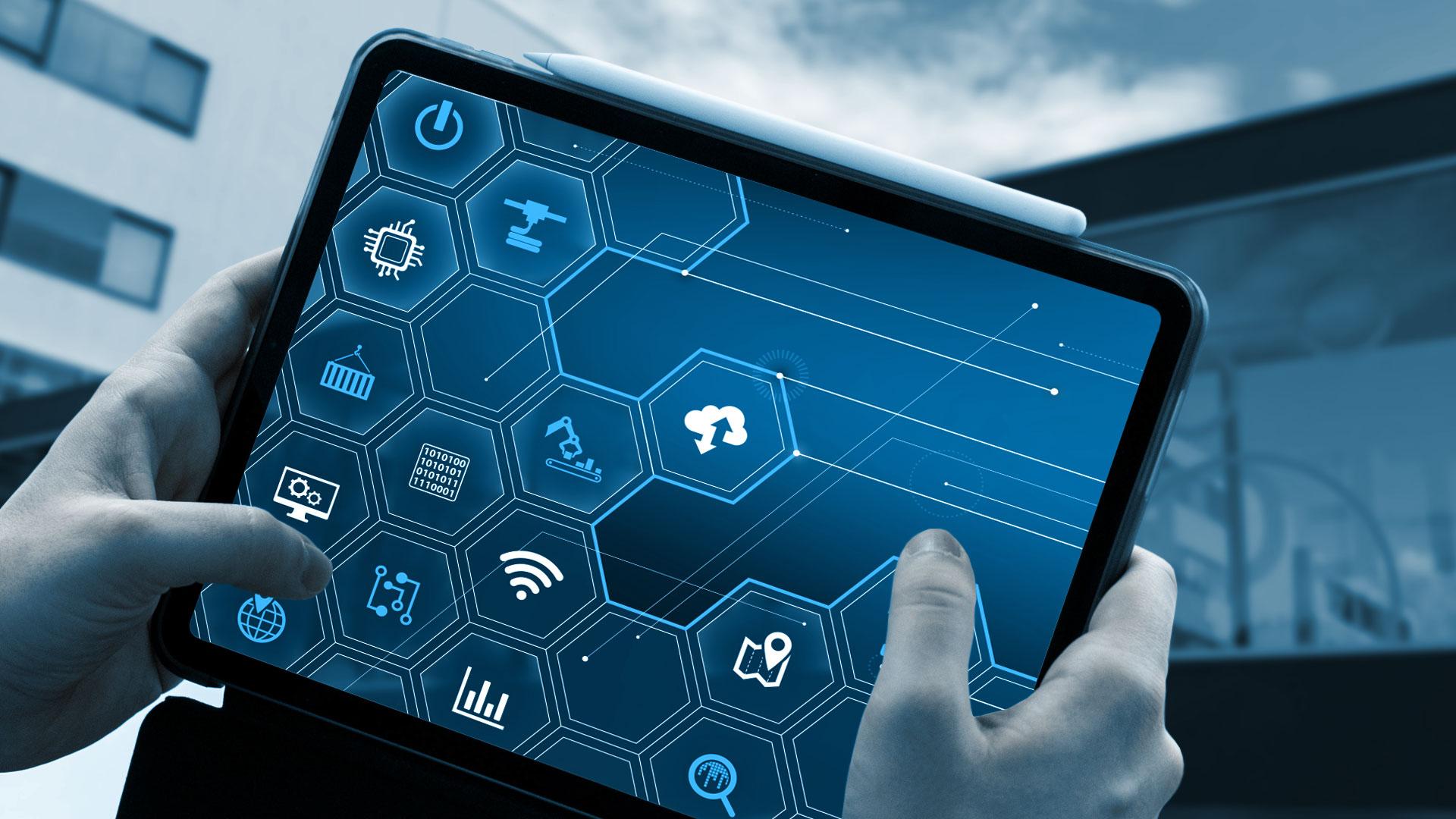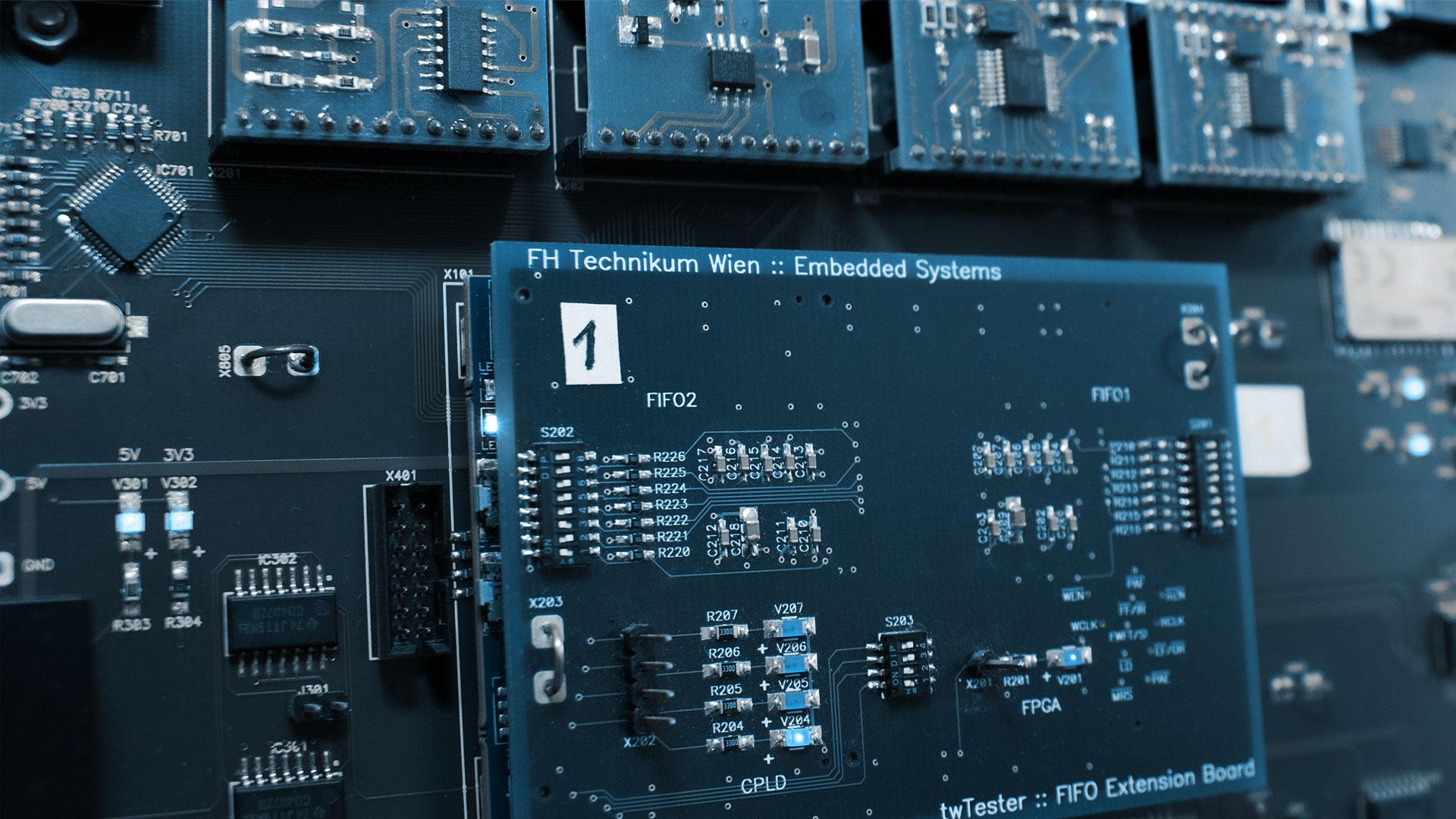Shaping the future with the new electronics degree program

22 November, 2022
UASTW is sharpening the profile of its start-up studies and offering four new bachelor’s degree programs – from Internet of Things to Entrepreneurship. On-site student advising at Open Day on Nov. 25.
Electronics are ubiquitous today, whether in smartphones, televisions, computers, electric cars or wind turbines. Anyone who masters technology can actively help shape the world of tomorrow and is in demand on the job market. At the FH Technikum Wien, electronics specialists have been trained at an academic level for more than 25 years, and now the program is getting its biggest update yet: four bachelor’s degree branches and attendance times that allow for either full-time or part-time study.
“We have adapted the program to the needs of different target groups and cover a broad range of topics with the branches of study,” says program director Peter Rössler. “Our graduates bring solid electronics competencies along with additional skills in areas such as computer science, business or personality development and are among the most sought-after technical specialists.”
“At Technikum, we have stood for electronics since our founding. If you look at today’s world, you quickly realize that our oldest’ degree program looks anything but old. Hardly any other field is so much in line with our claim Change our tomorrow,” says Managing Director Gabriele Költringer.
The branches of study of the Bachelor’s program at a glance
All students learn the basics of developing electronic systems, supplemented by knowledge of hardware-related computer science, natural sciences, economics and personality development. Depending on their personal interests, students can choose to focus more on skills in hardware development, sustainable energy technology, computer science or business. Four branches of study focus on four areas of electronics that are in high demand for the future and are precisely aligned with the FHTW’s advanced master’s degree programs:
- Embedded & Cyber-Physical Systems: Hardly anyone is aware when using everyday devices, such as the television, the car, a washing machine or the credit card, that embedded computer systems – so-called embedded systems – are located in all of these things. In addition, embedded systems are nowadays also used massively in the industrial sector, for example in automation technology, medical technology or robotics.
- Internet of Things & Smart Infrastructure: The “Internet of Things” is making its way into buildings, industrial plants and entire cities. This creates a smart infrastructure to connect the real world with the digital world. After basic electronics training, students in the Internet of Things & Smart Infrastructure major learn the fundamentals for implementing IoT systems and smart solutions in a variety of applications, such as specialized know-how in communications technology, computer science and automation technology.
- Power Electronics & Sustainable Energy Technology: The topic of energy is on everyone’s lips – and forms the focus of this branch of study: After basic electronics training, topics such as energy systems and energy conversion, the electricity industry, e-mobility or power electronics are dealt with specifically. The demand for well-trained specialists in these traditional and at the same time promising fields of electrical engineering and electronics has been high for many years, so that graduates of this program can expect excellent career prospects.
- Business & Entrepreneurship: From innovative start-ups to established corporations, the electronics industry encompasses a wide range of companies. Management competence and technical expertise are an unbeatable combination here. After basic electronics training, students in the Business & Entrepreneurship branch of the Electronics program are prepared for management tasks or the challenges of entrepreneurship. The program is suitable both for those interested in a mixed business and technical education and for people who already have the relevant know-how in one of the two disciplines – business or technology – and want to expand their knowledge in the sense of a higher professional qualification.
Convince on site, apply online
The new curricula will come into effect with the 2023/24 academic year. It is already possible to apply for the new branches of study. At the FHTW Open Day on November 25, from 10:00 a.m. to 6:00 p.m., prospective students can get on-site advice and experience projects and laboratories related to the degree program: www.technikum-wien.at/openday
Die vier Studienzweige im Überblick
Rückfragehinweis



